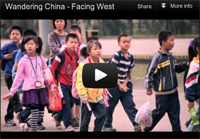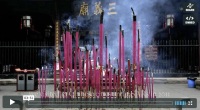One of two key political changes that China needs to watch closely whilst its own leadership sees a process of renewal. The US elections follow sometime later in the year but for now, Taiwan has to be in its sights. Threat to China’s notion of stability if the KMT fail to regain power? Very possibly so.
On another note, I do not fully agree with the article’s claims that China seeks unification, at least not right now. It is unlikely China would want to absorb a nation of millions of democracy advocates and a developed free media industry when right now, it has already stated clearly its intent to moderate Westernization in the mainland.
For more, do check out Polls open for Taiwan leadership election (China Daily, Jan 14, 2012)
– – –
Taiwanese vote in key presidential election
Source – BBC, published Jan 14,2012
Voters in Taiwan have been going to the polls to elect a new president, in a contest that will shape the island’s key relationship with China.
The current President, Ma Ying-jeou, is seeking a second term, but is facing a strong challenge from Taiwan’s opposition leader, Tsai Ing-wen.
Mr Ma has greatly improved ties with China, but Ms Tsai says his approach could endanger Taiwan’s sovereignty.
China regards the island as a breakaway province and wants unification.
A third contender who is trailing in the race is James Soong.
He is a former senior figure in Mr Ma’s party, the Kuomintang (KMT), who observers say could take votes away from the incumbent.
Local election watchers are predicting a turnout of 76% to 80% of the more than 18m registered voters on the island.
Cross-strait relations
Taiwan has been suffering its worst economic downturn in decades and unemployment has been rising.
However, most voters still view relations with China as the most important issue.
During Mr Ma’s presidency, regular direct flights and shipping links have been established with China and a landmark trade deal has been signed that cuts tariffs on hundreds of Taiwanese exports to the mainland.
Mr Ma, 61, says a vote for him is a vote for peace.
But some voters are concerned that Mr Ma’s policies will pave the way for unification with the mainland.
“I feel calm and hopeful,” said Hwang Shiu-mei, a mother of three who waited to vote at a polling station in Taipei.
“I hope we can see a win-win situation with China in the coming four years. We don’t want to see a stalemate and hope for a better economy, along with peace and stabilility.”
Ms Tsai and Mr Ma both cast their votes early in the capital.
“I’m very happy, I urge everyone to come out early and vote. This weather should help the voting rate,” Mr Ma told reporters at his polling station in a Taipei church as the light rain eased.
Ms Tsai, casting her ballot at a school in a Taipei suburb, said she was prepared to become the first female president of Taiwan.
Asked for further details, she said: “I hope we will be able to give you a full explanation after the vote is counted.”
Ms Tsai’s Democratic Progressive Party favours Taiwan’s formal independence from China.
Despite that, she has made overtures to the mainland, saying that she is not against negotiating with China on economic and other matters as long as it does not affect Taiwan’s sovereignty.
Potential flashpoint
China nonetheless remains suspicious of her and her party.
Beijing has 1,500 missiles aimed at the island to deter any attempt to declare independence.
The United States, which is a key ally of Taiwan, will also be watching the outcome of the vote closely.
Under the Taiwan relations act passed by the US Congress in 1979, the US is obliged to come to the defence of the island if it is attacked by any other party.
While Washington has not openly endorsed Mr Ma, observers say it is an open secret that the US prefers his approach to China.
Filed under: BBC, Beijing Consensus, Charm Offensive, Chinese Model, Democracy, Domestic Growth, Economics, Government & Policy, Influence, International Relations, National Medium- and Long- term Talent Development Plan, Nationalism, New Leadership, Peaceful Development, Politics, Public Diplomacy, Social, Soft Power, Strategy, Taiwan, Tao Guang Yang Hui (韬光养晦), The Chinese Identity, The construction of Chinese and Non-Chinese identities










